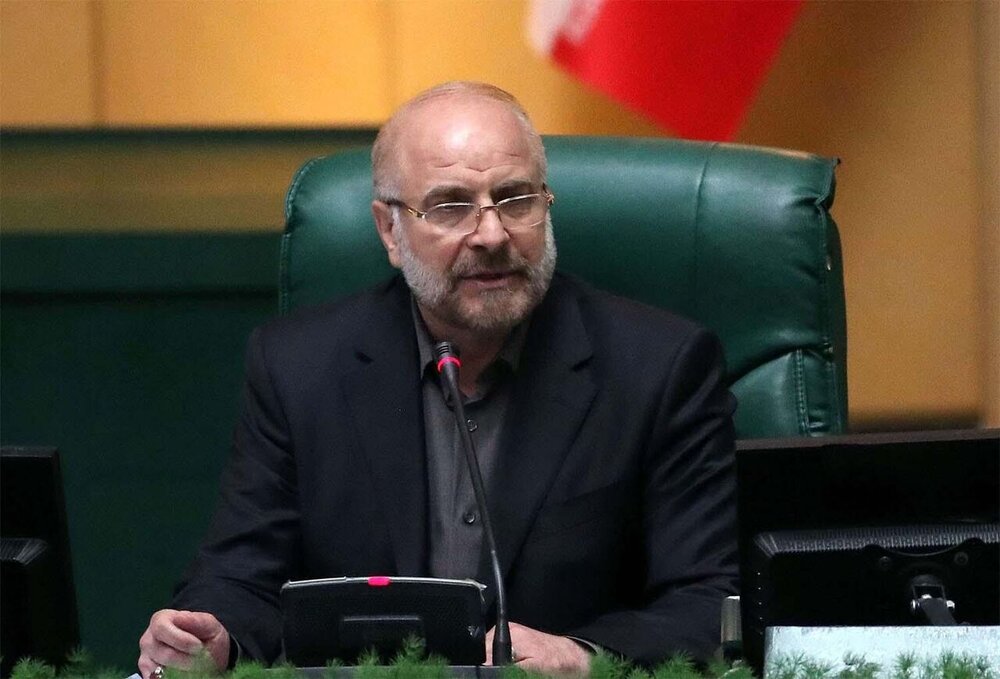Iran won’t give data recordings to IAEA: parliament speaker

TEHRAN – Iranian Parliament Mohammad Baqer Qalibaf has announced that Iran’s three-month deal with the UN nuclear watchdog has expired and thus Iran won’t give its data recordings to the UN body.
Qalibaf made the remarks in response to a question from a lawmaker on the latest developments regarding the deal between Iran and the International Atomic Energy Agency, which expired recently.
The lawmaker, Alireza Salimi, said if Iran’s top security body has made any decision regarding the deal. He said, “In the Strategic Action Act, we gave the International Atomic Energy Agency three months, which was extended for another month, but it has expired since about three days, and now we have to defend the parliament's legislation,” Salimi said.
Addressing the parliament speaker, the lawmaker asked, “Has the Supreme National Security Council made a decision that we do not know about? Please make the necessary remarks in this regard.”
Qalibaf responded by saying that the deal has expired, therefore, Iran will not provide the IAEA with the images it has been recording over the past few months.
“I have already talked about the Agency, and now I say that after the three-month opportunity which came to an end, nothing has been extended and after that none of the items recorded inside will ever be given to the Agency and are in the possession of the Islamic Republic of Iran. The law is being implemented accurately,” Qalibaf stated.
Iran and the IAEA reached in February a temporary deal allowing the Agency to continue its monitoring of Iran’s nuclear facilities for a period of three months. The deal was reached during a two-day visit by IAEA chief Rafael Grossi to Iran.
At that time the IAEA and the Atomic Energy Organization of Iran (AEOI)issued a joint statement announcing the deal.
“The Atomic Energy Organization of Iran and the International Atomic Energy Agency recalled and reaffirmed the spirit of cooperation and enhanced mutual trust that led to the Joint Statement in Tehran on 26 August 2020, and the importance of continuing that cooperation and trust,” the February statement said. “The AEOI informed the IAEA that in order to comply with the act passed by the Parliament of the Islamic Republic of Iran called ‘Strategic Action to Cease Actions and Protect the Interest of Iranian Nation’ Iran will stop the implementation of the voluntary measures as envisaged in the JCPOA, as of 23 February 2021.”
The statement added, “In view of the above and in order for the Agency to continue its verification and monitoring activities, the AEOI and the IAEA agreed: 1. That Iran continues to implement fully and without limitation its Comprehensive Safeguards Agreement with the IAEA as before. 2. To a temporary bilateral technical understanding, compatible with the Law, whereby the IAEA will continue with its necessary verification and monitoring activities for up to 3 months (as per technical annex). 3. To keep the technical understanding under regular review to ensure it continues to achieve its purposes.”
The February deal was reached after Iran started to implement a nuclear law obligating the Iranian government to restrict cooperation with the IAEA and increase nuclear activities if the West failed to meet the demands of Iran within a certain period. The deal was extended for three months until June 24. Recently Ali Akbar Salehi, head of the AEOI, sent a letter to the chief of the UN nuclear watchdog informing him that the February deal between Iran and the IAEA has expired but Iran decided to continue to store data related to monitoring activities.
The letter was announced after the Agency released a quarterly report on Iran in which it accused Iran of failing to explain traces of uranium found at several allegedly undeclared sites. The letter also came after IAEA Director-General Grossi announced on May 24 that he had agreed with Iran to extend by one month the February deal between Iran and the IAEA allowing the UN nuclear watchdog to continue necessary monitoring activities.
However, Kazem Gharibabadi, Iran’s permanent representative to the UN offices in Vienna, said that Salehi, in his letter, told Grossi that the monitoring deal has expired.
Leave a Comment